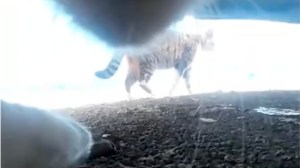Cameron Duke of MinuteEarth explains how a solar eclipse may have an odd effect on the behavior of some animals, while others simply return to places where they feel most safe. This type of information is anecdotal at best due to the long intervals between such events.
First, there’s the issue of sample size. Total solar eclipses only occur about once every 18 months, and each one only covers a small swath of the planet at a time. As a result, specific places can go more than 100 years between eclipse experiences, making repeated observations of animals in the same habitat challenging, to say the least.
With this in mind, reports can vary and even outright contradict one another.
It’s not surprising that some studies completely contradict each other, like this one, which found that black-crowned night herons make a ton of possibly-anxious noise during an eclipse, and this one, which says that black-crowned night herons stay silent during an eclipse.
Either way, the animals will respond as they do during a solar eclipse without human intervention, like the eclipse taking place on April 8, 2024, but how we react as humans is certainly within our control.
And that brings us to the issue of, well, us. We’re primed to expect that animals might do something weird during an eclipse …Eclipses can invoke fear and anxiety, or excitement and wonder in our own species, so perhaps it’s natural to expect – or even hope – that other creatures are sharing a piece of that experience with us.






